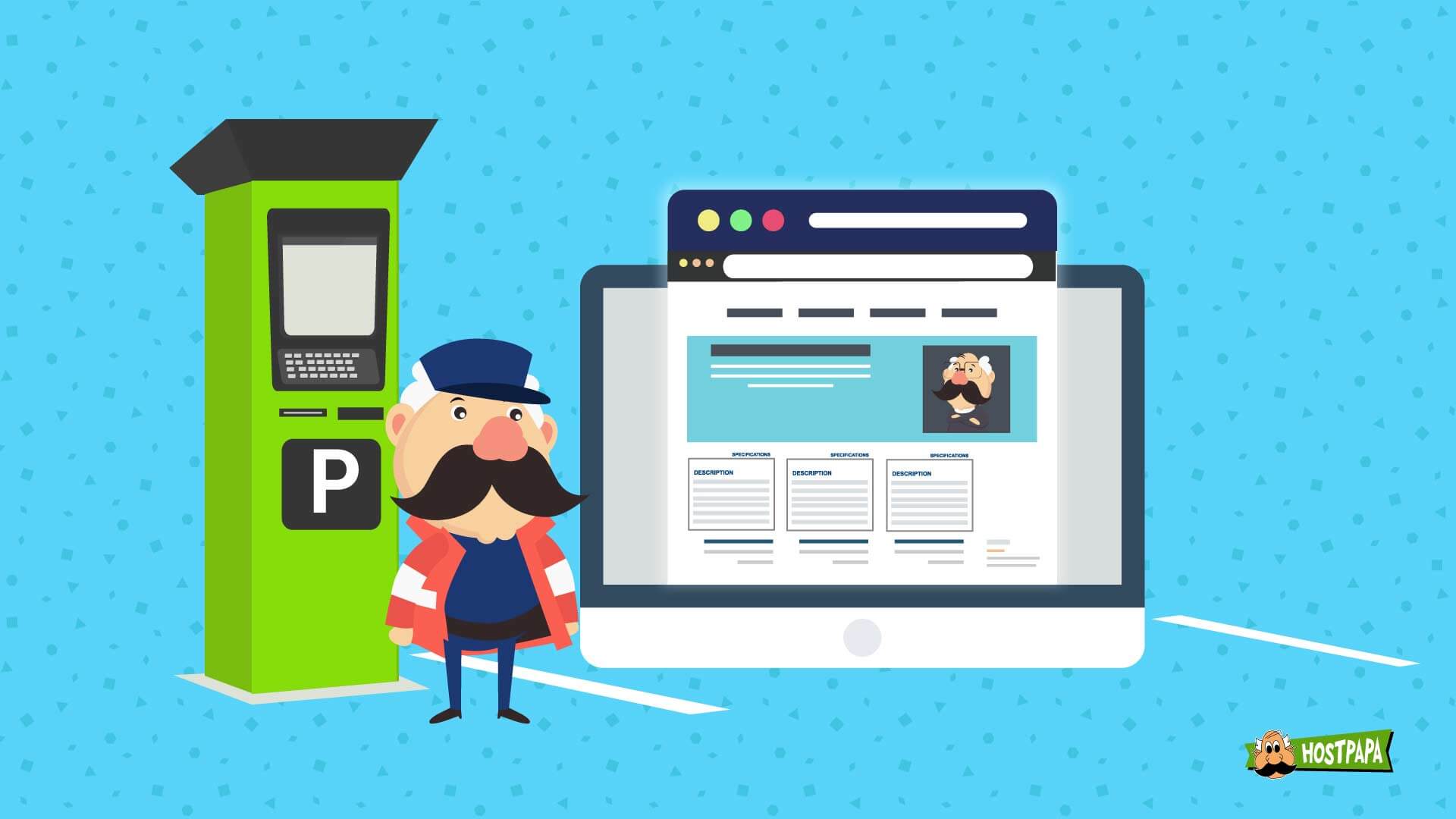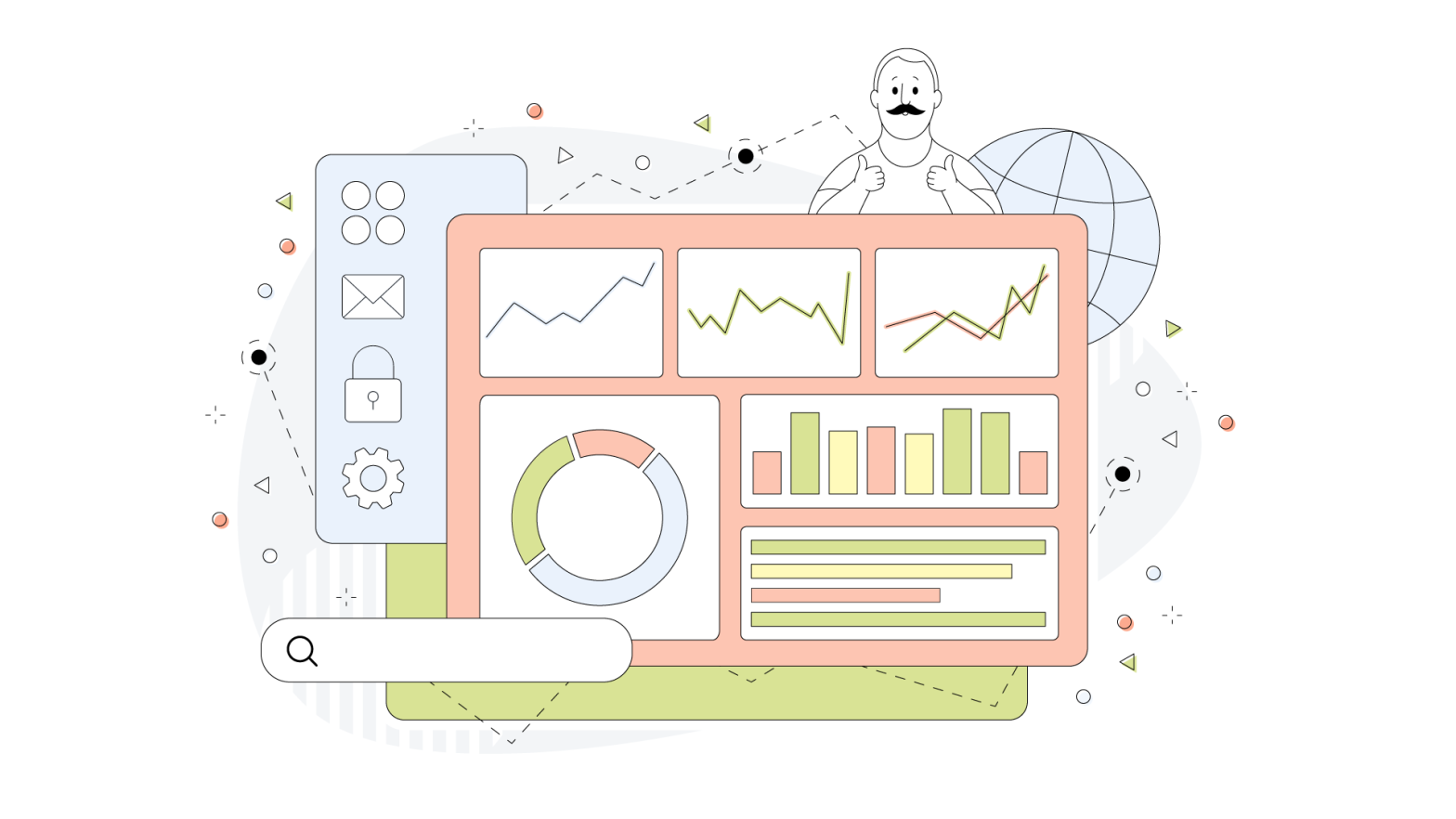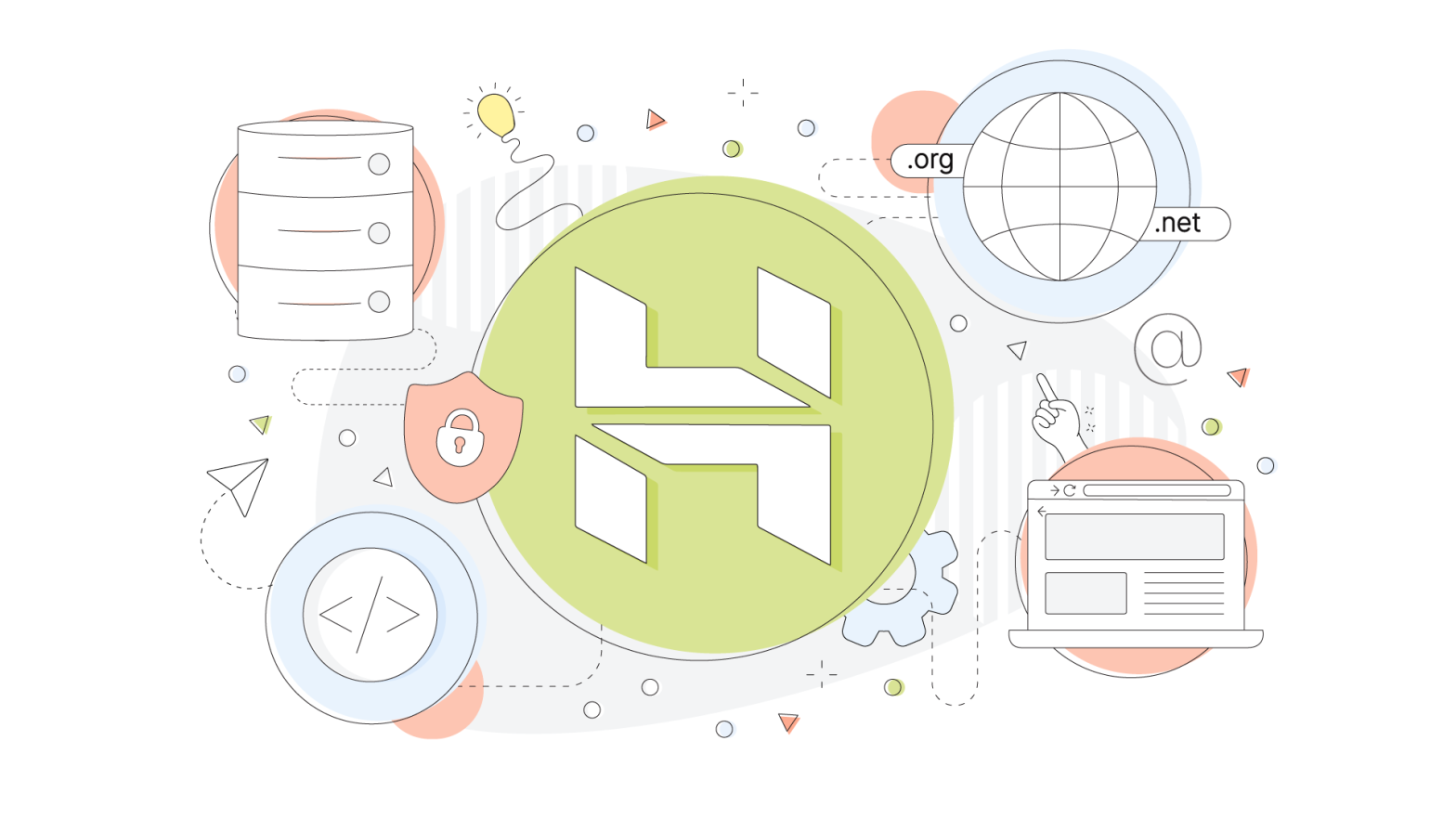A business typically has one website, and only one domain can be associated with that site. However, it’s common for businesses to own multiple domains, with all but their primary domain being idle; those unused domains are parked, set aside and managed in a way that best suits the owner.
There are numerous reasons that a domain owner might park a domain. Some involve protecting the owner’s brand, some are about the timing of a website launch. In other scenarios, a parked domain can be put to work as a way to generate income through online ads.
In this article, we’ll get more detailed about what a parked domain is and explore the reasons you may want to park the domains you own that are not in use. We’ll wrap up with an explanation about ways to manage parked domains and include a brief discussion about potential drawbacks related to domain parking.
What is a Parked Domain?
A parked domain is one that has been purchased but is not the primary domain associated with a business’s website. Registrars and hosting companies offer free domain parking services that give owners considerable flexibility in determining how their parked domains are handled.
When a user navigates to a parked domain, in most cases, one of three things will appear in their browser:
- An “Under Construction” or “Coming Soon” page letting visitors know that the owner of the domain has not published the associated website yet.
- A web page, managed by the registrar, that presents ads to visitors.
- A website that’s associated with the domain owner’s primary domain.
If an error page appears saying “This site cannot be reached,” that indicates that the domain name has not been purchased. Therefore, it’s not considered a parked domain.
That’s the important distinction about parked domains—someone has registered them, paying the fees required to guarantee exclusive access.
So, that leaves one question. Why would someone want a domain that they’re not using?
In the next section, we’ll explore some of the most common reasons that businesses have parked domains.

Why Park a Domain?
From brand protection and income generation to other factors related to website management, there are several excellent reasons to park an unused domain.
That’s what we’ll explore in this section.
If you own a domain you’re not using, there’s a great chance that one of these reasons will apply to your situation.
Define and Protect Your Brand
Your domain name is a major part of your brand. That’s the case even if you don’t engage in eCommerce, and if you do, then the value of a branding asset like “yourcompany.com” cannot be overstated. For some businesses, the domain name is literally the company name!
Protecting this all-important part of your branding requires attention and domain parking should be part of your approach. Here are three common reasons that domain owners park domains as a means of protecting their brand:
- Reserving a needed domain name. A good domain name is hard to get. When new business owners come up with their top choice, they’re often disappointed to learn the domain is already owned by someone else. It’s smart to decide on and register a domain name as early as possible. If you have to park the domain while creating your website, that’s always better than missing out on the domain because you waited too long to register it.
- Securing variations of the primary domain. You should buy variations of your primary domain name. Owning a very close variant of your domain, for example, will keep an unscrupulous competitor from buying that domain and using it to leech off your brand recognition and reputation. It’s easy for users to accidentally enter a domain name that’s similar to yours, but by buying and parking domains for variations of your trademarks and business name, you’ll make sure no one else can use them.
- Keeping a previously used domain name on ice. If you changed your business’s domain name and the old one was in use for a long time, it will still be closely connected with your brand, at least for a while. If a competitor was able to use your old domain, they could siphon business away from you, or the new owner might even use the domain to create a negative impression of your business. It’s best to hold onto the old domain for a while so, when users access it, you can show them the contents of the website that’s associated with your primary domain. If you want to put the old name to rest for good, you can choose another domain parking option and wait for the domain registration to expire.
If a business owned two variations of their primary domain and one old domain from back when the company started, that’s three domains that they’ll need to maintain the registrations for. But, paying the annual fees is only one of the steps needed to properly manage such domains. There are choices to be made about how parked domains will be handled, as we’ll discuss below.
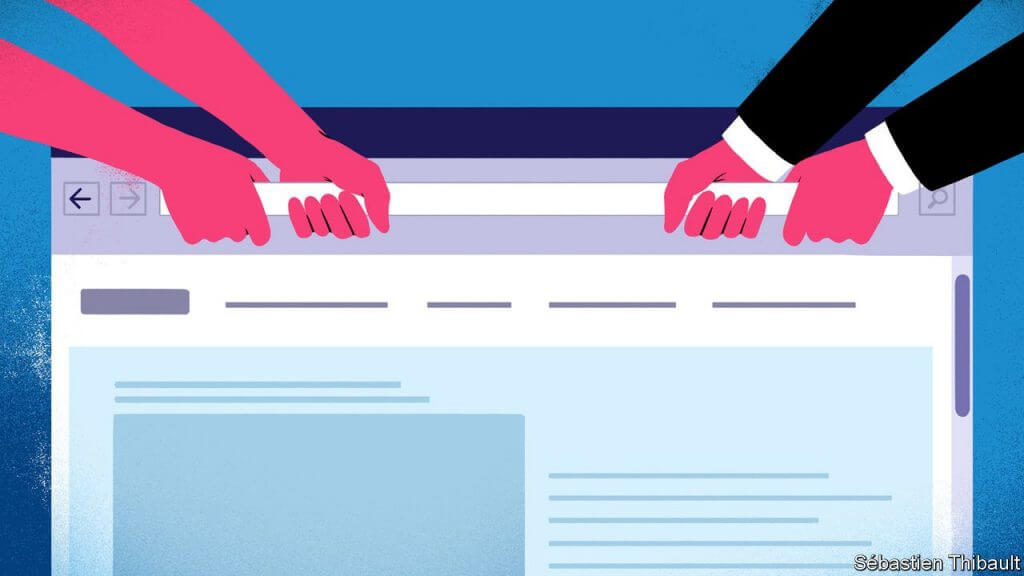
Manage Multiple Web Addresses
If a company has one or more parked domains for reasons related to branding and brand protection, they will most likely want to tie at least some of those domains to the website associated with their primary domain.
The rationale is, if a user enters one of those parked domains, they’re probably looking for your business, so why not show them your website? The browser address bar will display the parked domain name, but the website displayed will be the one that’s associated with the owner’s primary domain.
This option requires that you have hosting services for your primary domain. Most providers will allow you to designate any number of parked domains and specify how they should be handled, with one option being to automatically display the site that’s associated with the primary domain.
Generate Income
You may be holding onto domain names that you’ll never want to be tied to your business, but you don’t want anyone else to have them. Parked domains like that don’t have to sit dormant. You can use them to make money.
When your parked domain displays ads, with every visitor that clicks an ad, a small amount of income will be generated. When you indicate that a parked domain should be disconnected from any hosting service, the registrar will use the domain to display advertisements, and you will get a portion of the generated income.
Going this route means the webpage that appears to users when they navigate to the parked domain will be controlled by the registrar or hosting company. It will be one page only, it will contain ads you do not have any control over, and there’ll probably be a link to the registrar or hosting company.
What we’re discussing here is monetized domain parking, and, from the domain owner’s perspective, it’s really the only way to make money from a parked domain.
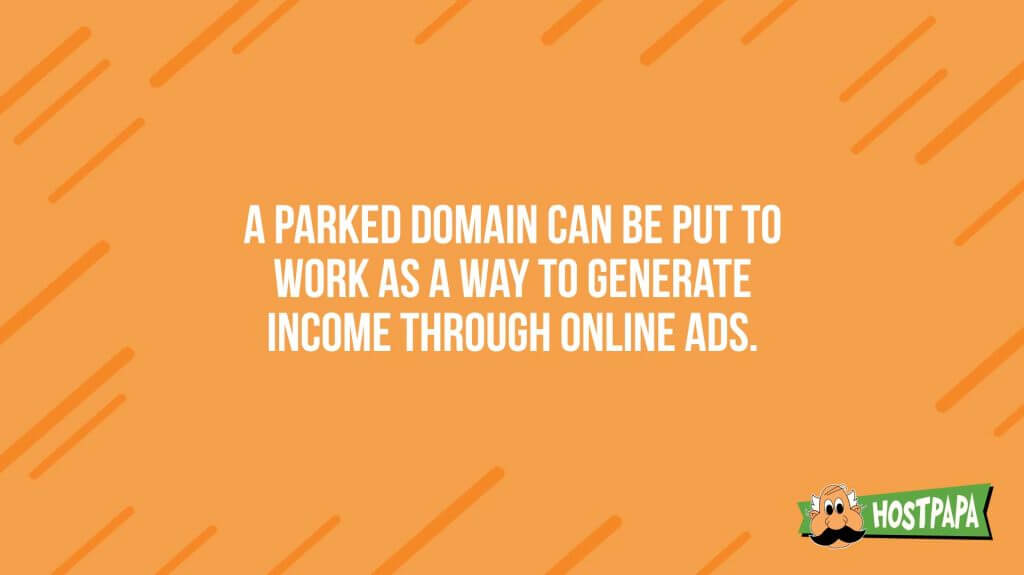
Extra Time for Development
An excellent reason to park a domain is to buy time while you’re developing your website. If you buy your domain within days of deciding to start a company, that’s a very smart move, but there’s a problem—there’s no website yet, so what will you do with the domain?
The registrar or hosting company will give you an option to display an “Under Construction” or “Coming Soon” message. Alternatively, if you have hosting resources in place for the new domain name, you can create your own one-page website to make visitors aware of the site’s status and reinforce your branding at the same time.
What you should not do in this situation is opt for monetized domain parking because customers and prospects that prematurely attempt to access your site will see a display of ads that are completely unrelated to your business. In the time it will take you to complete website development, there’s no reason to alienate users with a monetized parked domain.
Waiting for Expiration
If you changed your company’s name, you may have no use for the domain name that’s related to the old company name. That’s a good reason to park the domain.
Opting for an “Under Construction” message is an option, but if there’s no lingering connection between the old domain and your brand, you might as well monetize the parked domain. By disconnecting it from your hosting service, your registrar will use it to display ads and generate income, some of which will come your way.
In this scenario, why not make some money off the parked domain while you wait for the registration to expire?
Managing Parked Domains
When you purchase a domain but do not use it as the primary domain for your business’s website, there will be free domain parking options that include having an “Under Construction” or “Coming Soon” page appear. Or, you may choose to allow the registrar to monetize the domain by displaying ads.
With hosting in place, your options expand, enabling you to display a branded page with website status, or you can specify that the domain should be tied to the website that’s associated with your primary domain.
How you choose to manage your parked domains will be determined by your reasons for holding onto the domains.
If a domain is closely related to your primary domain and your brand, for example, using it to present your website is a good choice. If a domain is completely disconnected from your current brand, it’s a good candidate for parking that generates income through ads. If you’re about to put the parked domain to use with a new website, parking it with a “Coming Soon” message would be better.
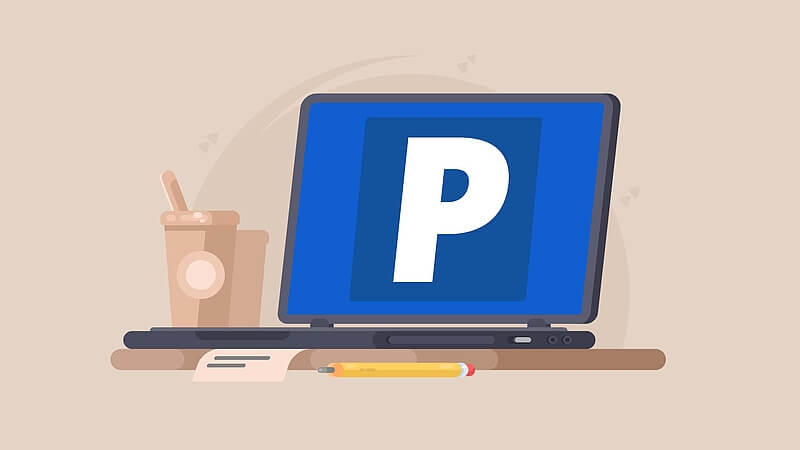
The Potential Downside of Domain Parking
There are pitfalls associated with many of the choices you have in handling parked domains, but they can all be avoided by ensuring you choose the right approach for your specific situation.
If your parked domain displays a generic “Under Construction” message for too long, visitors will be alienated and their interest in your business might wain. If site development is taking longer than expected, it might be time to engage your hosting services so the domain could display a branded page with a more engaging message about the status of the site.
If you snagged a dozen close variants of your primary domain and all of them display a generic ad page that’s managed by the registrar, you can be sure at least some of your customers will accidentally visit those domains. Showing them ads might make money, but it can also alienate users and give them a bad impression of your business. In this scenario, it’s wise to put the most often visited parked domains to better use, having them display the site contents associated with your primary domain.
Make Parked Domains Work for You
Owning the right domain and several variations of it will cost your business in registration fees, but not owning them could cost more. By securing the domain you want early and protecting your brand by locking down related domains, you’ll create a firm foundation for all your online marketing.
What you do with those extra domains is up to you, and the various parking choices all have their place. You may want to buy time for website creation, keep competitors from using a domain, or squeeze some value out of a domain you’ll never use.
For any situation, there’s an approach to domain parking that will work for you.
